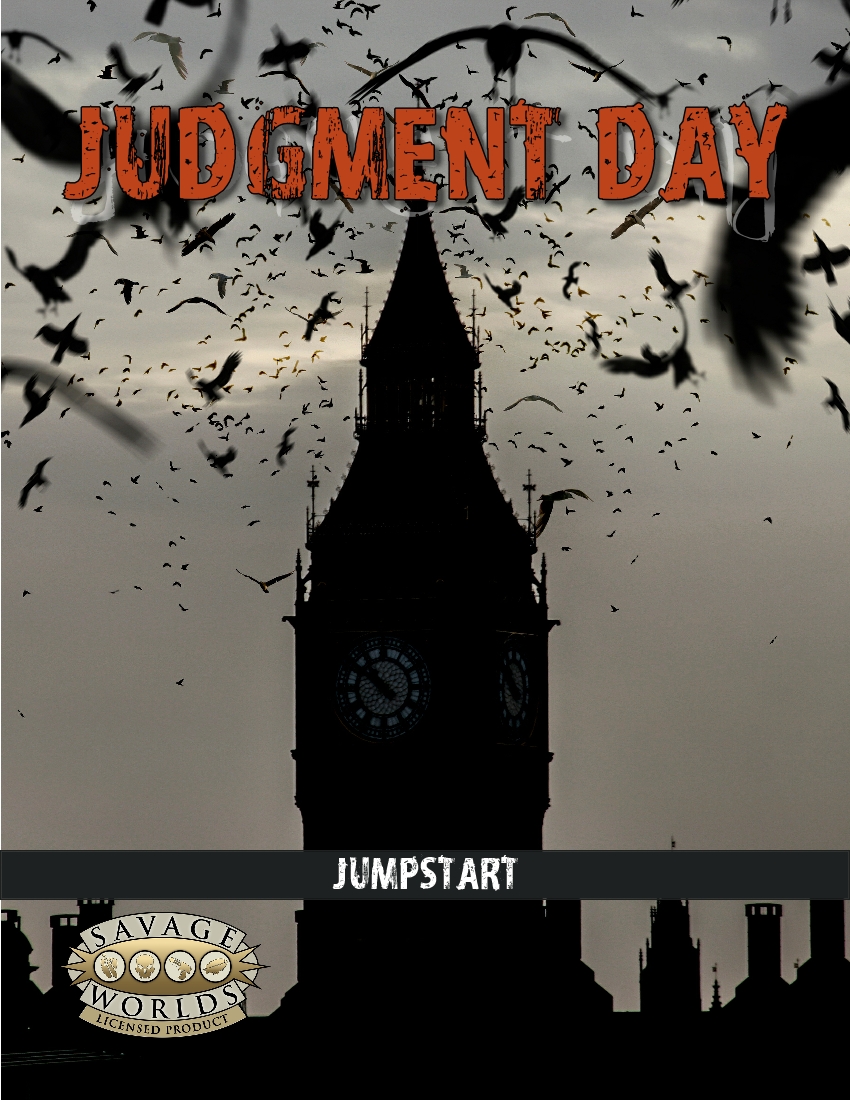The Need to be Governed
By The Warden
 Here I was all ready and set to start writing today’s post about player responsibility in RPGs when I came across a very recent post by Steve Kenson (creator and current publisher of the ICONS superhero RPG) and we’ll have to delay that topic for another time because there’s something in Senor Kenson’s post that got me thinking (and that’s exactly why people write blog posts, so we can call it a success).
Here I was all ready and set to start writing today’s post about player responsibility in RPGs when I came across a very recent post by Steve Kenson (creator and current publisher of the ICONS superhero RPG) and we’ll have to delay that topic for another time because there’s something in Senor Kenson’s post that got me thinking (and that’s exactly why people write blog posts, so we can call it a success).
On his blog, he talks about the role of initiative – or the lack thereof, depending on your point of view – in ICONS. The rule for determining who starts when goes as follows, so quoted from the same blog post.
“Typically, the conflict starts off with the panels of whichever side initiates: if a villain launches an attack, start with the villain’s panel. If the heroes spring into action, begin with their panels. Once one side’s actions are resolved, go to the other side, then back and forth until the conflict ends.”
– from Steve Kenson’s blog, quoting page 55 of the ICONS rulebook
Straight forward and to the point, yes? If the heroes charge into the fray, each of them takes a turn dishing out some punishment before the tide turns to the villains. When I first clicked on the link to read this post, I assumed it would offer a breakdown of possibilities, examples, and such, but it was far from the truth. Instead, it was a listing of alternate rules for handling initiative in the game, including dice rolls and skill or point applications.
Before we get going, I’m going to make something very clear: I have yet to play ICONS (mostly because any superhero games in my schedule already use either Marvel Heroic RPG, Mutants & Masterminds, or the Savage Worlds’ Necessary Evil), so it’s entirely possible that this single paragraph does not account for numerous factors associated with initiative in the game, but the purpose of today’s post is not the specifics of ICONS‘ initiative. It’s the need for RPGs to have clearly defined rules written in advance. What I’m asking is what’s wrong with simply having the GM determine who gets to act first based on the situation at hand?
As with everything else ever in the universe, there are two camps with strong opinions on this matter: those who believe a good game is loaded with hundreds of pages of rules and options versus the others who like their systems simple and straight to the point. When it comes to initiative mechanics, I’ve been covering its impact from the very beginning of this column and generally find it the diciest mechanic in many games because it’s typically glossed over and oversimplified solely to get us to the nitty gritty of the action itself. That’s not to say the idea of using GM determination to set initiative is an oversimplification; if anything, it’s an appropriate tool to handle something as complex as millisecond differences in physical and mental reaction times and provides players with a kind of freedom in turn arrangement. If you want to go after your tank, just say so. Boom! Problem solved, right? Occam’s Razor at its finest.
Based on the sheer existence for Mr. Kenson’s post, the answer is clearly no. It doesn’t work out for everyone and there has been some demand for something more concrete and decisive – something the GM can point out in the rules and defend her decision in the same way a professional sports referee can cite the league’s rulebook when sending someone to the penalty box. Personally speaking, this mindset comes across as an insult to Gamemasters everywhere for the sheer fact that it assumes a lack of trust in those we turn to for entertainment and storytelling. It assumes the rules are designed to ensure everyone plays fair, including the GM, rather than entering the game with an automatic expectation that the GM is there to provide an enjoyable game/story for everyone – GM included – to enjoy.
It’s understandable when making the initial leap from traditional board games to roleplaying games because many of those games set single player victory as the goal. RPGs are a co-operative team activity and that includes the GM, whose role is to facilitate the players’ actions into a cohesive whole. They’re not there to kick your ass, nor are they expected to hold your hand the entire way. It’s a fine balance between one and the other without restricting it to either, just like the host of any party. When you invite your friends over to watch a movie, you don’t force them to watch it from the kitchen or restrict who can watch it based on who brought the most snacks, do you? If that’s the case, how are you able to convince people to keep coming back for more abuse? If we expect a modicum of respect and dignity from all players, doesn’t that apply mutually to the Gamemaster as well?
For me, it’s that freedom of interpretation that makes RPGs so free and invigorating. Players are not limited to every detail accounted for in a published work because the final judgment lies with the individual we call the GM. If I want to pick up the rocket launcher dropped by an enemy, I’m not limited by whether or not the programmers of a video game decided to allow it, but by the will of my GM. Not only that, but the GM will explain why instead of spouting an outright refusal. “There was only one rocket available and it was already fired; there’s nothing to shoot back, so you can’t use it.” OK, cool, totally understandable and worth a shot. If I feel my GM is constantly turning down ideas, a discussion can be made outside of the game and a reasonable conclusion can be drawn. You can’t barter with a video game. It’s about trusting your Gamemaster to do what’s right for the game as a whole, including the players and their characters.
It’s something I’ve written about before in this column and my own blog, but something clicked while reading this particular post. We, as a society, have a need to be governed and exist within a pre-existing body of rules. We agree to abide by a set structure and must confirm our agreement nearly every step of the way because a minority of people will defy these rules whenever they get a chance. To make a point, there’s a reason why you have to match a gibberish passcode if you want to post a comment to this very article and it’s because there are a handful of spambots out there who will spread their filth even though it’s a really sad move on their part. The difference is that we cannot control the spambots because this website is open to the entire world (or those who can find it). Our roleplaying games are not, much in the same way we don’t have to put up with door-to-door salespeople if we don’t want to. We can simply shut the door and move on with our lives.
That’s not to say rules are overrated and unnecessary. Far from it, but when our plates are loaded high with a dozen spinning plates of gaming goodness, simplicity can be key. If the GM has taken on the challenge of running a game, it implies they have followed every other step leading up to it. Obtaining the game, reading the game, learning the rules, and so much more. If players are not going to assume Gamemasters are going to run their characters for them, it seems only fair to allow the same in reverse and let the GM do their job. Let the rules highlight the exceptions and explain how someone with super-speed gains the upper hand in initiative rather than limiting the power based on an illusionary fairness to players around the world. If everyone can read a poem and reach their own interpretation, why can’t we take the same game and insert our own values in an effort to make the game going down at our table our own? Do the rules encourage creativity or provide limitations?
With so much discussion on the future of the RPG industry ever present in our mind and our blogs, is it not safe to say we have something to offer unlike any other branch of entertainment? Isn’t that its biggest selling point? A game of the mind where you are limited only by your imagination and your ability to stretch the possibilities without breaking them rather than your ability to follow along with pre-existing guidelines. That’s what I signed up for and it’s what brings me back each and every single time because that’s what makes roleplaying games so unique in a world of duplicates.


